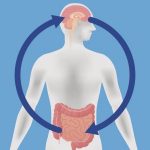 April is Stress Awareness Month, and we here at Bel Marra have put together a list of very informative articles to help everyone deal with stress and to both identify the causes and help cure stress. Here you will find information on age-related macular degeneration, heart artery dysfunction, and tips to reduce stress. It takes only a little bit of your time to become informed about the dangers of stress.
April is Stress Awareness Month, and we here at Bel Marra have put together a list of very informative articles to help everyone deal with stress and to both identify the causes and help cure stress. Here you will find information on age-related macular degeneration, heart artery dysfunction, and tips to reduce stress. It takes only a little bit of your time to become informed about the dangers of stress.
The impact of stress on age-related macular degeneration
New research was recently published in the journal Optometry and Vision Science examining the role that psychological stress plays in relation to age-related macular degeneration (AMD). Age-related macular degeneration is a form of progressive vision loss that is the most prevalent cause of vision loss among older Americans.
Advertisement
It is classified as an inflammatory disease, and as such, the study focused on the link between stress and inflammation and how it affects the treatment outcomes for the disease. Those experiencing vision loss due to AMD also experience higher rates of stress, anxiety, and depression, though whether these psychological conditions worsen the progression of the disease is unknown. Continue reading…
 Heart artery dysfunction in women linked to emotional stress: Study
Heart artery dysfunction in women linked to emotional stress: Study
Heart artery dysfunction in women may be linked to emotional stress. C. Noel Bairey Merz, professor of medicine and senior author, explained, “Women who go to emergency rooms and cardiologists because they have chest pain often are told that their arteries are clear and their hearts are fine. But the reality is that women’s coronary artery disease tends to be different from men’s. In women, the large arteries may remain clear, but the smaller branches that connect to the even smaller capillaries lose their ability to widen. Whether the large arteries are blocked or the small arterioles don’t function correctly, the result is the same—the heart becomes starved for oxygen.”
It is a well-known fact that women with chest pain and reduced oxygen supply to the heart may experience dysfunction in the smaller blood vessels when under emotional stress—even if their heart rate remains relatively low. The aim of the present study was to assess the functioning of the heart’s autonomic system—the network of nerves regulating heart rate. Continue reading…
 Tips to reduce stress
Tips to reduce stress
Stress is an inevitable part of life, and whether it is due to work, familial obligations, or finances, Americans have been looking for natural ways to reduce anxiety. Below is a list of some popular and effective natural stress relief techniques to help you better manage and cope with daily stressors and anxieties.
Laugh. It may sound simple, but sometimes laughter really is the best medicine. A 2003 study found that laughing can ease feelings of stress and reduce stress hormones. So, the next time you feel under pressure, queue up that silly animal video that always gets a chuckle and laugh away the stress. Continue reading…
 Getting your greens may reduce stress: Study
Getting your greens may reduce stress: Study
The British Medical Journal Open recently published a study that found that eating a moderate amount of fruits and vegetables may help lower psychological distress. The study collected data from 60,000 Australians who were 45 or older and analyzed their fruit and vegetable consumption, lifestyle factors, and psychological distress at two points in time—first between 2006 and 2008 and again in 2010. To measure psychological distress, researchers used the Kessler Psychological Distress Scale—a questionnaire consisting of ten items that measure general anxiety and depression. Researchers also had participants answer short, validated questions to assess their usual fruit and vegetable consumption.
Advertisement
The results of the study found that those who consumed three to four servings of vegetables daily had a 12 percent lower risk of experiencing stress than those who ate zero to one daily serving. Those who ate five to seven servings of fruits and vegetables daily saw a 14 percent lower risk of stress than those who ate zero to four servings. Continue reading…
 Prebiotics may help improve sleep and reduce stress: study
Prebiotics may help improve sleep and reduce stress: study
While the benefits of probiotics have been widely touted—encouraging people to consume yogurts and kefir in order to get their dose of good bacteria—new research has found that another form of gut-health agent, prebiotics, can also improve your overall health and well-being.
Prebiotics function as food for healthy gut bacteria and have been found to help improve sleep quality and reduce the physiological effects of stress. Prebiotics are considered dietary fibers and are found naturally in foods like chicory, artichokes, raw garlic, leeks, and onions. They aid in brain health, as when they are digested by good bacteria, these bacteria multiply and create metabolic byproducts that some research has linked to brain function. Continue reading…
